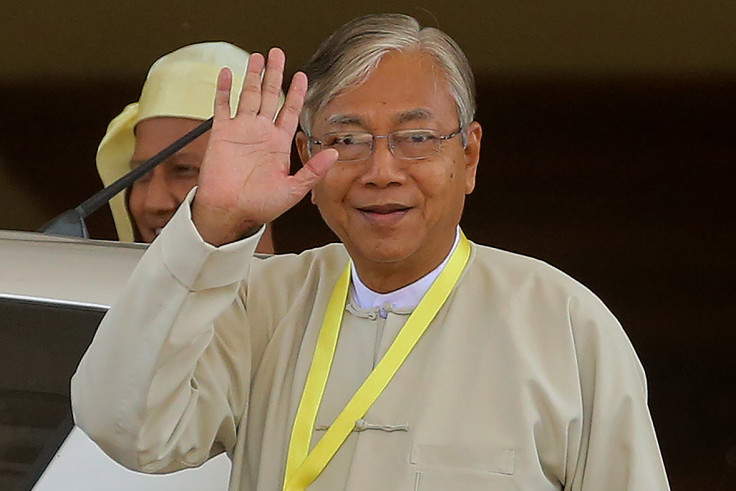Htin Kyaw set to take over as Myanmar's first civilian leader in decades

Htin Kyaw, a close aide of Nobel peace laureate Aung San Suu Kyi, is set to take over as Myanmar's first civilian leader in more than five decades. The 69-year-old will be sworn in as the country's president when the junta-backed incumbent, Thein Sein, leaves office on 30 March.
The handover of power to Htin Kyaw, backed by Suu Kyi's National League for Democracy (NLD), marks the culmination of a prolonged transition to democracy of the south-east Asian nation, which has a population of 51 million people.
With the NLD winning more than 80% votes in the November 2015 elections, exceptions are also high from the government, which will invariably be led by Suu Kyi though she is barred from presidency.
"For the first two years, because Aung San Suu Kyi appointed him, he can be a follower of Aung San Suu Kyi but after one or two years he must try to become a true leader," Myat Thu, chairman of the Yangon School of Political Science, told the Channel News Asia.
Suu Kyi's performance in the administration will also largely depend on its relations with the country's powerful military, which still wields influence in many ministries and other state machinery.
Meanwhile, outgoing leader Thein Sein, who came to power in 2011, has set the country in motion towards a reform path, paving the way for a democratically-elected government. As part of his parting announcement, he lifted the four-year-old state of emergency in the western state of Rakhine, the nerve centre where clashes between Buddhists and Rohingya Muslims raged.
In a surprise decision on the eve of his departure, a statement from Thein Sein's office said: "It is found from the report by the Rakhine state government that the situation in Rakhine state can no longer pose dangers to the lives and property of the people."
The emergency was imposed in Rakhine in June 2012 after communal clashes scarred the state, claiming more than 200 lives and displacing as many as 100,000 people, mostly Rohingyas. There have been no major incidents in the area in the last two years, though Rakhine remains volatile.
© Copyright IBTimes 2025. All rights reserved.




















